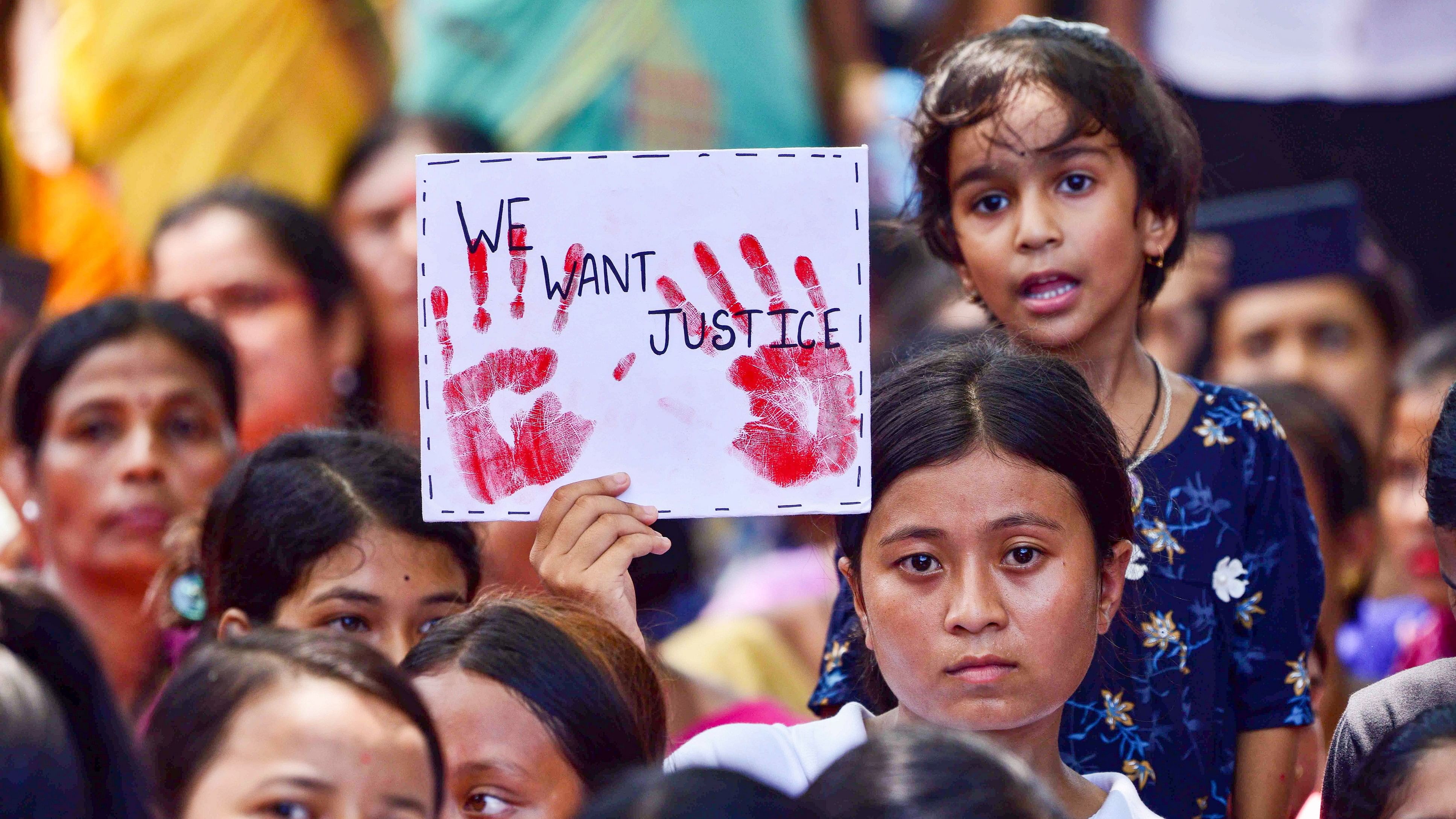
Locals protest against an alleged gang-rape of a 14-year-old girl by three men at Dhing area, in Nagaon district, Friday.
Credit: PTI Photo
Bengaluru: Conviction rate in rape cases reported in Bengaluru between 2013 and 2023 stands at an abysmal 0.76 per cent, according to data accessed by DH.
Only 10 out of the 1,322 reported cases in the time period saw the guilty being brought to book, a shocking statistic that made an activist call for more fast-track courts to ensure swift punishment to offenders.
Police submitted 'B' reports in 110 (8.32 per cent) of the reported cases. A 'B' report is submitted to the court when a police probe finds no evidence on the complaint registered.
A total of 259 cases (19.59 per cent) resulted in acquittal or discharge and close to 18 per cent of the cases are under investigation, many of them for over five years.
The high rates at which the number of cases is increasing — 66 in 2013 to 173 in 2023 (statistics in box) — and concerns over underreporting add context to the situation.
A senior police officer who has overseen many rape cases explained to DH that even comprehensively conducted investigations could fall flat in court.
"In many cases, the complainant turns hostile while recording the statement before the magistrate. In such cases, the police are left with no option,” the officer said.
Sabiha Bhoomigowda, former vice-chancellor of Karnataka State Akkamahadevi Women's University, Vijayapura, while backing the officer’s contention, spoke about the complainants’ reasons to turn hostile.
"No woman wants to recollect these distressing incidents. Trials in rape cases stretch up to five to six years, and in some cases, even decades. A victim cannot repeatedly narrate her ordeal," Sabiha told DH. Data reveal that trials are ongoing on 713 (53.9%) of the reported cases.
Sabiha said societal forces also influenced victims who are already grappling with negative emotions.
Fast-tracking justice
Rupa Hassan, a writer and activist involved in counseling the Hassan sex abuse case victims, advocated more fast-track courts for rape cases to ensure faster judgment. If fast-track courts are not possible, every court should, at least, have a dedicated bench to handle rape cases.
"Mandatory women judges and lawyers is a lot to ask but, at least, the staff at the courts who deal with such cases should be women," she said.
A dedicated legal body or NGOs that aid rape victims could check instances of victims turning hostile. These bodies should first counsel, and then train, the victims to face court proceedings by instilling confidence in them, she said.
The number of rape cases has almost tripled over the 11 years. Investigators also noted that these cases might represent only 30-40 per cent of the actual number, while the rest of them go unreported. "Over the years, the number of false cases has increased. They not only add to the reported cases but also make the conviction rate appear low,” a senior police officer said.
Investigators DH spoke to traced some of these false cases to live-in relationships. In such situations, the complainant and the accused are likely to come to an understanding and the complainant may take a U-turn before the judge, derailing the case.
A senior officer from the Criminal Investigation Department stated another reason for the high case numbers and low conviction rates is that Protection of Children from Sexual Offences (POCSO) Act cases are also registered under rape.
In cases involving girl victims aged around 16-17 years, their families that initially file complaints also tend to persuade the aggressors to marry the girls. These families turn hostile in front of the magistrate, further lowering the conviction rate.